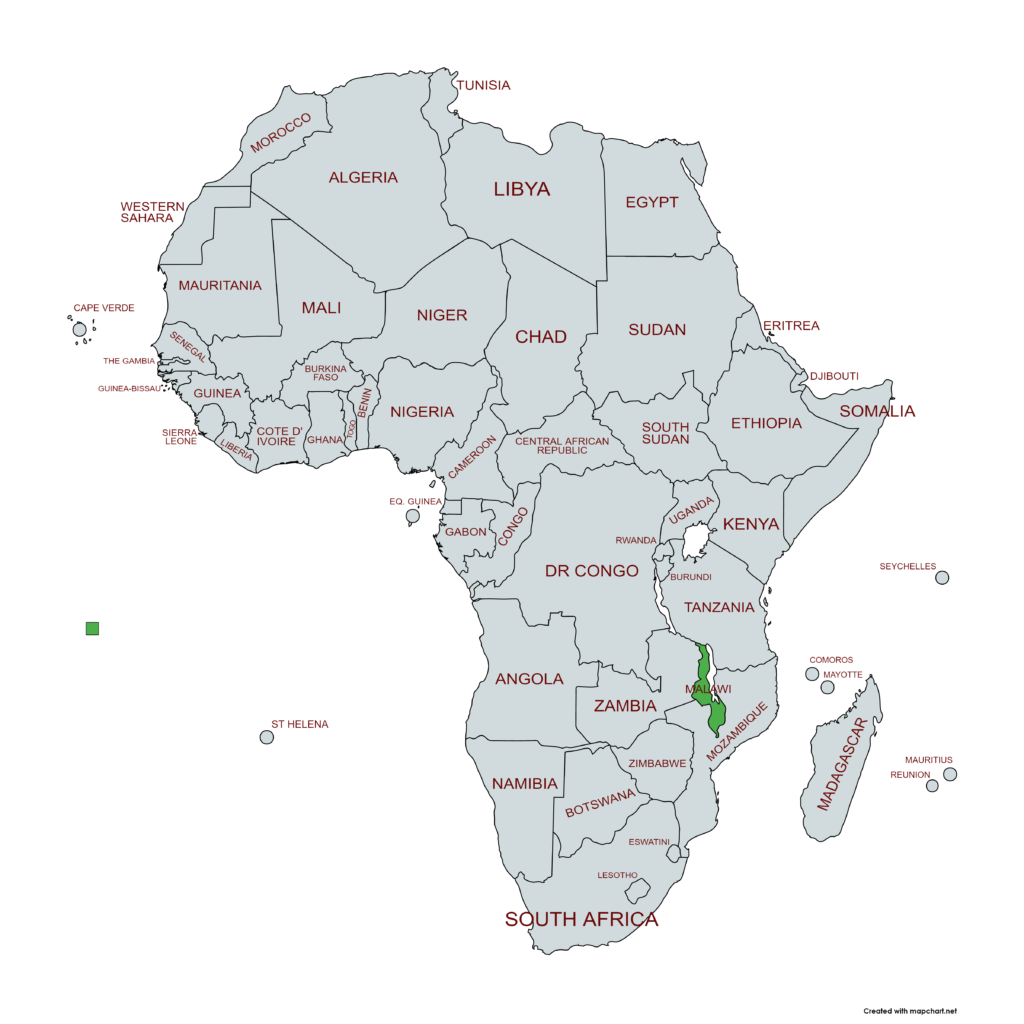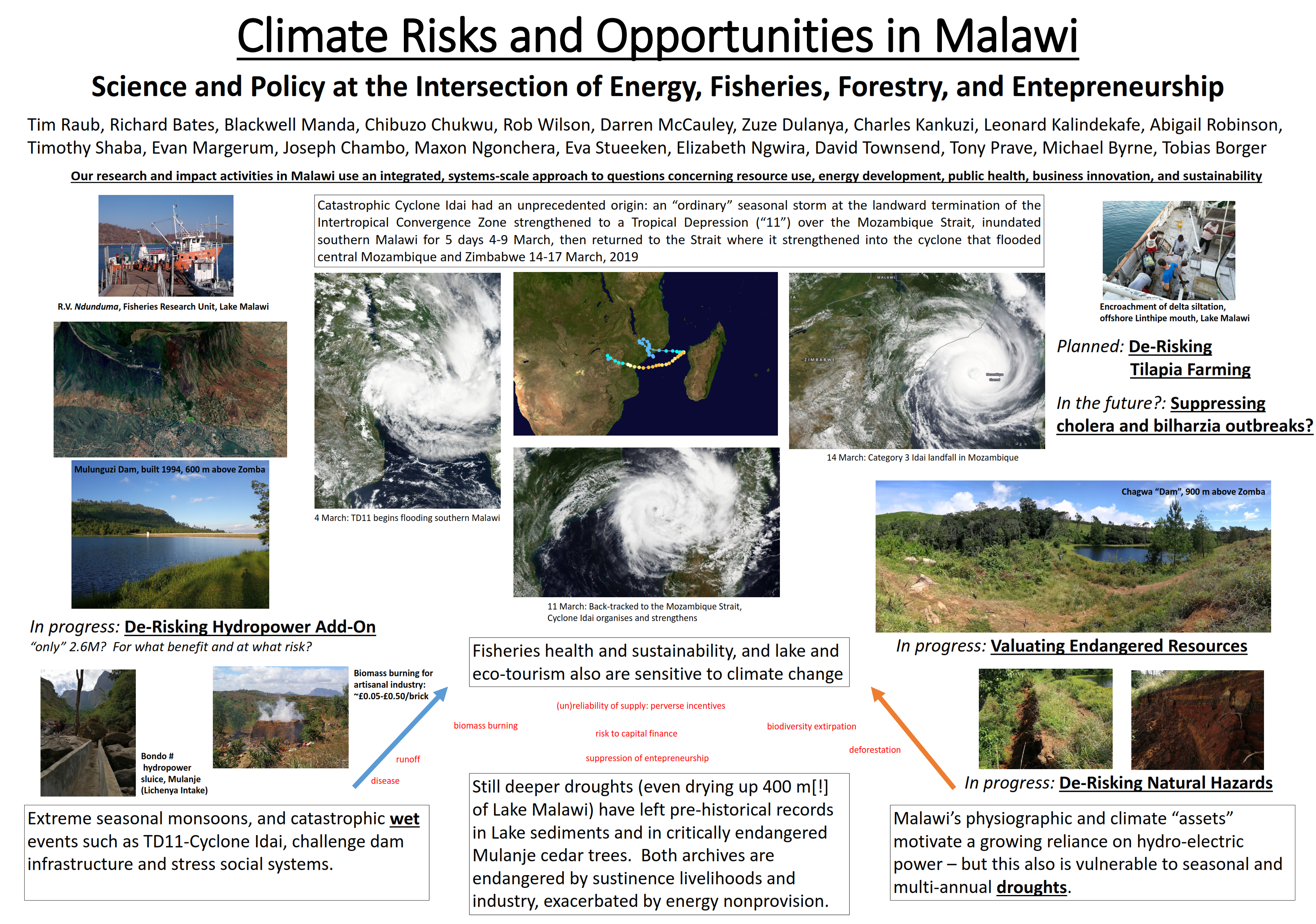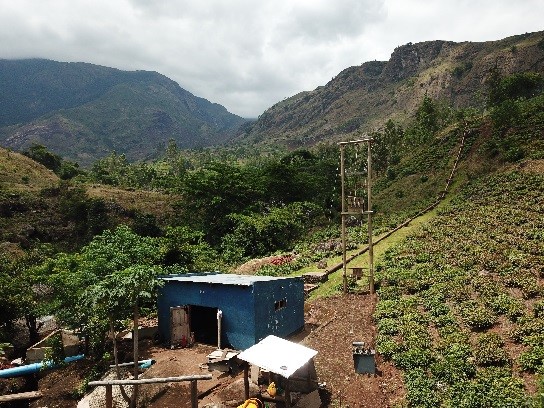Mitigating climate change and creating business innovation at intersections of the Energy, Fisheries, Forestry, and Entrepreneurship industries

GCRF Funding Cycle
2018-19
Principal Investigator
Dr Tim Raub
Schools
Earth & Environmental Sciences, Geography & Sustainable Development
ODA countries
Malawi
In recent years, the World Bank has funded a number of data collection and feasibility studies in Malawi, intending to identify locations suitable for new energy generation by ‘green’ techniques such as geothermal and hydro-electric power plants. These World Bank investments have ended, and reports submitted suggest sites for development.

However, conditions have changed since the original World Bank investment, so that now private companies can produce energy, whereas previously only the parastatal company was permitted. This changing finance landscape requires professional standard derisking assessments and business-case construction.

We obtained a previously inaccessible Mulunguzi (Zomba) Dam Hydro-electric feasibility study, which the World Bank financed in 2011 and identified that it lacked any hydrogeological information, which is a necessary prerequisite for finance seeking in any hydro-electric project. We collected this hydrogeological data and are preparing a report addendum for Zomba City Council. We will update the technology, cost, and demand aspects of the 2011 report to bring it up to modern standard for financing. We also began continuation of left-off World Bank studies into prospective geothermal energy sites by building a playfair model using World Bank-funded geophysical data. Finally, we identified a potential deforestation-related nutrient deficiency in a critical Lake Malawi fish hatchery.

